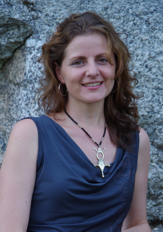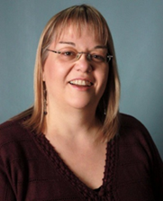
|
|
|
|
|
|
|
|
|
|
|||||||||||||||
The role of schools in augmenting resilience resources for children and adolescents in times of adversity Resilience is understood as a dynamic, interactive process where individuals use personal assets to draw on relational and physical resources, to achieve better than expected outcomes (Masten, 2014). Tol and colleagues (2013) conclude a supportive environment is critical in supporting resilience. Interactive social components of resilience impact personal meaning-making and related decisions. In turn, how individuals perceive the relevance and availability of resources impacts how they engage with their social and physical environment. Collectively, these interactions impact the subsequent outcomes of individuals, children and adolescents in particular. This presentation will review the current understanding and research findings of resilience as it related to children and adolescents. This review will then be used to highlight the role of schools, including the physical spaces they provide and the relational supports they offer, in supporting the wellbeing outcomes of children and adolescents, especially in times of adversity. The presentation will conclude with a consideration of the ways in which resilience theory and research can shape educational service delivery. References
Short CV Linda Liebenberg, Ph.D., is a leading researcher and evaluator in the field of youth wellbeing and community resilience, Adjunct Professor, Faculty of Graduate Studies, Dalhousie University and an International Research Affiliate at the UNESCO Child and Family Research Centre, National University Ireland. She is a researcher and evaluator with a core interest in children and youth with complex needs. Her work explores the promotion of positive youth development and the promotion of mental health, using formal and informal resources, primarily through the development of community resilience and related community resources. To support understanding of these processes, Linda evaluates formal service provision (such as education) and researches youth lived experiences within communities and as children navigate formal and informal resources. Linda has developed consulting and collaborative relationships with many international community-based organizations, including Save the Children Denmark, Eskasoni Mental Health Services, Right to Play, the World Bank, the World Health Organization, and the Public Health Association of Canada. She has presented on all five continents on culturally and contextually meaningful approaches to promoting positive psychosocial outcomes of children and youth as well as the ways in which this can be researched and evaluated.
What colour is happiness - What does equity say? This lecture is inspired by a study conducted in Serbia in 2019, which included children aged between 5 and 7 from the Roma and general population, and implemented by drawing on the Clarks’ study with children of African-American origin (Clark & Clark, 1946). Answering to the question of which one of two dolls (identical, and differing only by skin colour) was more beautiful, a girl from the general population pointed to the doll with lighter skin and said that the darker one “was not of happy colour“. This intrigued me to think of all the things in our education that “were not happy“ and the kind of implications this had on children’s well-being, their learning and development. Are our curricula happy for all children? Are the goals and outcomes of education happy? Do our schools educate and foster happy or unhappy children, and what does this depend on?
Short CV Prof. Jelena Vranješević, PhD is a Full Professor of Developmental Psychology at the Faculty of Philosophy, Department of Pedagogy and Andragogy. She graduated, and obtained her MA and PhD from the Department of Psychology at the Faculty of Philosophy in Belgrade. She worked from 1993 in the Developmental Counselling Office of the Zvezdara Primary Health Centre as a clinical psychologist, and from 1994 till 2014 at the Faculty of Teacher Education in Belgrade. Since 2014 she has worked at the Faculty of Philosophy, holding the courses of Developmental Psychology, Pedagogical Psychology and Psychology of Lifelong Development. She is the author of the books: Promena slike o sebi: autoportret adolescencije [Changing of Self-concept: Self-portrait of Adolescence], Razvojne kompetencije i participacija dece: od stvarnog ka mogućem [Developmental Competencies and Children's Participation: From the Real to the Possible], Od učesnika do istraživača: deca u participativnim istraživanjima [From the Participant towards the Researcher: Children in Participatory Research], Odrastanje na margini [Growing up at the Margin], and the co-author of the book: Nevidljivo dete – slika o detetu u medijima [The Invisible Child – The Image of the Child in Media Contents Intended for Adults]. She wrote numerous papers published in domestic and international professional and scientific journals. She participated in the creation and coordination of a number of national and international projects from the domain of early childhood development, education for social justice/intercultural education, communication and alternative ways of conflict resolution (mediation and negotiation), child rights/participatory rights and leadership in education. She is a co-author of corresponding textbooks from the mentioned domains and leader of various trainings for adults in Serbia and abroad. She participated in research projects addressing various aspects of improving the quality of education: children's and parents' participation in the educational process and teachers' professional development. The areas of her professional interest are: the development of children and adolescents, human rights/children rights, education for social justice and intercultural education, and the professional development of teachers.
The Psychological Response to the COVID-19 Pandemic in Slovenia: The Role of Social and Emotional Competencies COVID-19 pandemic was an intense and sudden stressor that affected psychological functioning across the globe. In addition to being a health threat, its longevity and restrictions act as significant stressors and a risk for mental health. In the lecture, the focus is on how psychological responding has changed as the pandemic was ongoing and how can social and emotional competencies (self-awareness, self-management, social awareness, relationship skills, responsible decision making) support the process. The empirical insight will be provided by two studies. The first one, The Role of Emotional Competencies in Psychological response to COVID-19 Pandemic, uses cross-sectional convenience data collection on adult samples in the first three waves of COVID-19 pandemic with a focus on the emotional competencies, their role and their development. The second, Positive Youth Development in Slovenia: Developmental pathways in the context of migration, uses 3-wave longitudinal data collection in the COVID-19 pandemic school year on Slovenian youth sample investigating the contextual and individual resources of positive youth development. As the pandemic was ongoing at the time of both studies, it has provided opportunities to analyse protective factors for better psychological responses in the precise time of increased stress related to the pandemic in adult and youth samples. Both studies highlight the importance of contextual support for social and emotional competencies development. Short CV Ana Kozina is a researcher and Head of the Centre for Evaluation Studies at the Educational Research Institute in Slovenia. Her work is in the field of developmental and educational psychology. She is focused on the developmental and time-related trends of aggression and anxiety (in childhood and adolescence), their interplay and the role anxiety and aggression play on individual level, on school level and on the community level (with possible prevention and intervention designs). In the field of education, she is interested in the factors related to students’ academic achievement and well-being (social and emotional learning, school climate). Currently she is the principal investigator of the European project: HAND IN HAND: Empowering Teachers Across Europe to Deal with Social, Emotional and Diversity Related Career Challenges, and is actively involved in the international research project Positive Youth Development Across Cultures (led by Bergen University, Norway). She is a guest lecturer at the University of Maribor (Slovenia), member of the Editorial Board of the CEPS journal, Slovene representative in EERA (European Educational Reseacrh Association), and Slovene representative in INASED (International Association of Educators). |
|
 Keynote lectures
Keynote lectures

